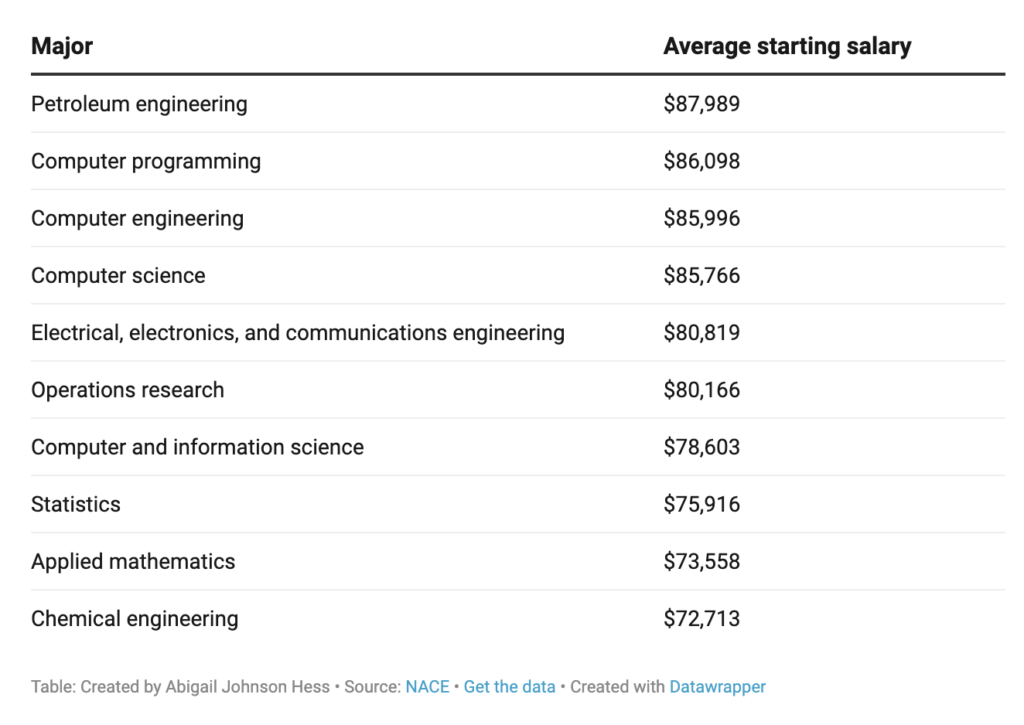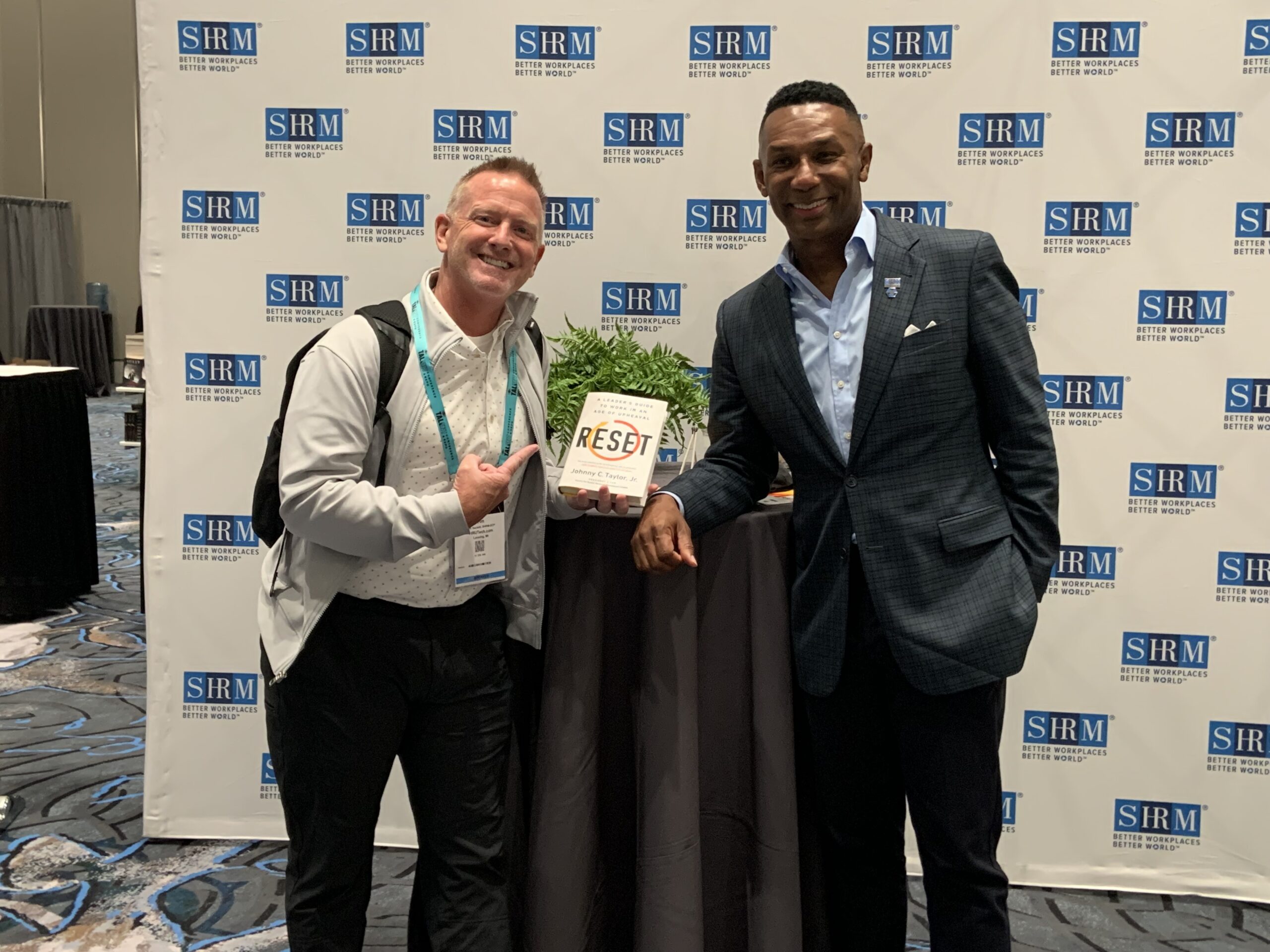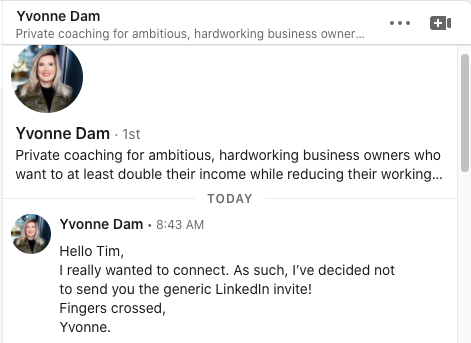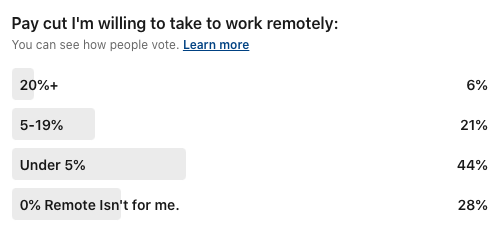CNBC recently had one of those articles about what the top starting salaries are for new college graduates. You know the kind of article I’m talking about, the kind where some kid from a liberal arts college who graduated with an Art History degree thinks they should be getting an $85K starting salary because someone who graduated with a computer science degree gets that!
Here’s the highest starting salary from the CNBC article:

Here’s the problem with this type of salary data?!
- It’s taken out of context from a market and industry perspective! Okay, a “Petroleum Entry-Level Engineer” can make $87,989 for a starting salary. But only in the best case possible result of a combintion of great entry level candidate, from a top school, going to a top company, in an exensive area!
- New grads of other degrees think they are close to these top most-wanted graduates! You’re not! And it’s not even close! Congratulations, you really challenged yourself and got that Comms degree. Slow down, you’re only worth half of the top most wanted, at best! But, when they see these lists, they are like, “well, okay, I’m not worth $80K, but probably like $60K!” Nope. Try $40K.
- This is university and college career center porn. They love sharing these surveys which aren’t close to being accurate and usally based on self-reported new hire graduate salaires. So, really you’re making $42K, but you say $50K because you’re embarrassed you aren’t making more like all the “other” graduates. Who by the way, are also not making this much!
All of this gives Talent Acquisition pros a giant headache because we have to deal with the bad data and lies being fed to these kids. Look, we get it. If we were overcharging our “customers” by amounts that should spark a government investigation, we would also want our customers to believe they are getting great value for the money they are spending!
The problem is the companies that hire new graduates are dealing with the fallout of trying to re-educate students entering the workforce about what their true value is, and often that is a gutshot for a student also paying off tens of thousands of dollars in student loan debt.
What should we be doing?
I think colleges and universities should make students sign a letter that they understand what the starting entry-level salary is for the program they are entering. And sign a new agreement every time they decide to change programs. Those entry-level starting salaries should be the actual starting salaries from the top 100 organizations that actually hire those graduates, and segmented by market.
I think a little taste of reality would help all parties out. Hey, FYI, you’re choosing to work in a field that pays peanuts. It’s totally awesome you want to do it, but understand this is what you’re buying into! Students go in eyes wide open. Employers get students who have better expectations. An universitys’ might have to start answering some questions on why they are charging $50K a year to attend school for a job that only pays $40K!
As you can tell, I’m not a huge fan of this kind of data and articles. Most of the highest we already know. STEM careers in IT and Engineering are always the most wanted. Some stand out because they’re actually so few, both jobs and graduating seniors (Petroleum Engineers and Chemical Engineers). Then, there’s a giant drop-off.



